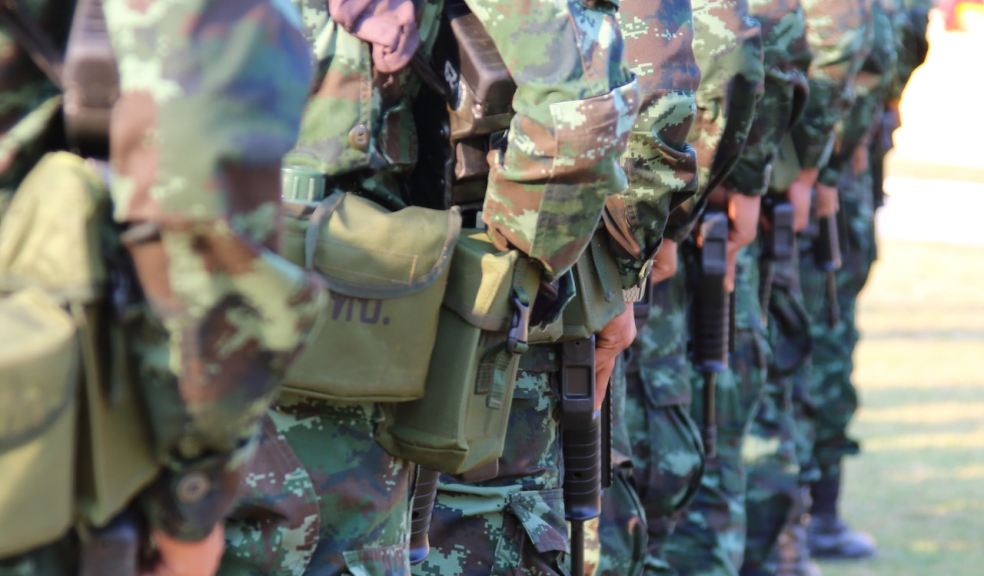
The problem of assault in the UK Military: Accountability and justice
The latest annual statistics from the Ministry of Defence raise serious welfare concerns for the armed forces. Violence and assault continue to threaten the integrity of the military, even with the thorough vetting and training processes for each serving member.
Amongst the Service Police investigations between 1st January and 31st December 2022, there were 342 investigations into sexual offences and 27 Forensic Medical Examinations relating to rape or sexual assault by penetration.
Men and women alike take great pride in the opportunity to serve their country, but they should be able to do so without needing to worry about any kind of harassment. And despite new policies announced to tackle ‘unacceptable behaviour’ amongst serving personnel, reports are widespread.
Whether you’re thinking of joining or returning to active service soon, it’s worth knowing the facts.
What’s the state of assault in the UK military?
The number of sexual offences and allegations concerning military personnel have increased. Despite several claims and new initiatives from the Ministry of Defence, crime rates remain high.
In the UK, the number of reported rapes on military bases has doubled in six years, with figures proving a significant increase in attacks on female personnel. Frequent scandals taint the reputation of the military, which itself still seems slow and unconvincing in its response and regard for victims and their justice.
Should civilian courts have authority over military assault cases?
Serving personnel and their families have called to move sexual offences into the civilian justice system. Over the past three years, eight in ten rape charges tried by a military court martial ended without conviction, exposing an alarming and long-standing scandal.
Despite such low conviction rates coming to light, the Service Justice System continues to hear sexual assault cases within the forces.
The significant failures of this system in the past will continue to be scrutinised unless the government and the Ministry of Defence can improve the system for vulnerable service personnel – especially women. Until then, only experienced military solicitors can support victims with successful claims.
How could the justice system be improved?
In 2022, the Ministry of Defence launched a new service and independent body with the overarching aim to help investigate and prevent criminal offences within the Armed Forces. The Defence Serious Crime Command (DSCC) and Defence Serious Crime Unit (DSCU) can investigate the most serious alleged crimes relating to service personnel.
Additionally, ‘unacceptable behaviour’ is being tackled with recently published measures. The MoD has offered more guidance and three ‘Zero Tolerance’ measures, which include:
- ‘Zero Tolerance’ to Unacceptable Sexual Behaviour, a new approach policy that focuses on victims and survivors
- ‘Zero Tolerance’ to Unacceptable Sexual Offences, including sexual relationships between trainees and their instructors
- ‘Zero Tolerance’ to Sexual Exploitation and Abuse
Looking ahead: What support is available for military personnel?
The Victim Witness Care Unit (VWCU) sets out to provide a single point of contact to witnesses and victims throughout their Service Justice Process journey. Established in March 2023, this support branch works independently of the Royal Navy, Army, and Royal Air Force chains of command.
It offers holistic care and support to victims and witnesses, making sure that their rights are afforded in court. Overall, the VWCU will:
- Focus on victims’ well-being
- Encourage others to access support
- Offer a single point of contact for victims and witnesses
Overview
Unfortunately, sexual assault and scandals run deep within every level of the military. Even claims from of the most prestigious military training establishments, Sandhurst, revealed 19 sexual relationships between cadets and their instructors.
Tackling the problem starts at prevention. Through strict and genuine policies, personnel must be educated and respect their colleagues. And when it comes to reporting and making allegations, victims should be encouraged, believed, and supported.













